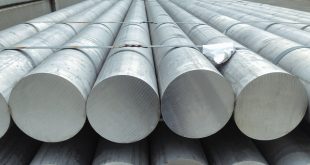Proper waste management is essential for maintaining a clean and healthy environment, especially for properties that rely on cess pits. A cess pit, unlike a septic tank, is a sealed underground container that stores wastewater and sewage. Over time, this pit fills up and needs to be emptied to prevent overflow, unpleasant odours, and potential health hazards. In this comprehensive guide, we’ll explore why regular cess pit emptying is crucial for your property and what you need to know to maintain your system effectively.
Understanding Cess Pits: What They Are and How They Work
What is a Cess Pit?
A cess pit is an underground storage tank designed to hold wastewater and sewage from a property. Unlike a septic tank, which treats wastewater and allows effluent to be discharged into the ground, a cess pit is a sealed unit that requires regular emptying. The contents of a cess pit are not processed but stored until they can be removed by a professional waste management service.
How Does a Cess Pit Work?
Cess pits are typically made from concrete, fibreglass, or plastic and are installed underground. Wastewater from your property flows directly into the cess pit through a network of pipes. As the pit fills, the level of waste rises, and it must be emptied regularly to prevent overflow. Since the cess pit does not treat the waste, it is essential to monitor the fill level and arrange for emptying before it reaches capacity.
The Importance of Regular Cess Pit Emptying
Preventing Overflow and Environmental Contamination
One of the most critical reasons to regularly empty your cess pit is to prevent overflow. When a cess pit reaches its capacity, it can no longer hold additional waste, leading to spillage. This overflow can contaminate nearby soil, groundwater, and surface water, posing severe environmental risks. Contaminated water can spread harmful bacteria and pathogens, affecting local ecosystems and potentially entering drinking water sources.
Avoiding Unpleasant Odours
A cess pit that is not emptied regularly can emit foul odours as the waste inside begins to decompose. These odours can permeate your property and the surrounding area, creating an unpleasant living environment. Regular emptying helps to mitigate this issue by removing the waste before it reaches a point where it produces significant odours.
Protecting Public Health
The accumulation of waste in a cess pit can lead to the growth of harmful bacteria and pathogens. If the cess pit overflows or leaks, these contaminants can spread to the surrounding environment, posing a health risk to you, your family, and your neighbours. Regular emptying reduces the risk of contamination and helps maintain a safe and healthy living environment.
The Consequences of Neglecting Cess Pit Maintenance
Risk of System Failure
Neglecting to empty your cess pit regularly can result in system failure. When a cess pit becomes too full, the pressure on the tank walls increases, potentially leading to cracks or leaks. A damaged cess pit can be costly to repair and may require the installation of a new system altogether. Regular maintenance and emptying can help prevent these issues and extend the lifespan of your cess pit.
Legal and Financial Implications
In many areas, property owners are legally required to maintain their cess pits and ensure they are emptied regularly. Failing to do so can result in fines, legal action, and increased costs for emergency repairs or environmental clean-up. Additionally, if your property is found to be the source of environmental contamination due to a neglected cess pit, you may be held liable for the damage, leading to significant financial penalties.
Impact on Property Value
A well-maintained cess pit is a crucial factor in preserving the value of your property. If your cess pit is neglected and becomes a source of environmental or health issues, it can significantly reduce the appeal of your property to potential buyers. Regular maintenance and emptying demonstrate responsible property management, which can help maintain or even increase your property’s value.
How Often Should You Empty Your Cess Pit?
Factors Influencing Emptying Frequency
The frequency with which you need to empty your cess pit depends on several factors, including the size of the pit, the number of occupants in your property, and the amount of wastewater generated. On average, most cess pits require emptying every 6 to 12 months, but this can vary based on individual circumstances.
Monitoring Fill Levels
It is essential to monitor the fill level of your cess pit regularly. Some cess pits are equipped with alarms that alert you when the pit is nearing capacity, while others may require manual inspection. By keeping track of the fill level, you can schedule emptying before the pit overflows, ensuring the system remains functional and avoiding emergency situations.
Professional Advice
Consulting with a professional waste management company can provide valuable insights into the optimal emptying schedule for your cess pit. Professionals can assess your system, consider your usage patterns, and recommend a maintenance plan tailored to your needs. Regular inspections by a professional can also help identify potential issues before they become significant problems.
Choosing a Professional Cess Pit Emptying Service
Why Hire a Professional?
Emptying a cess pit is a task that requires specialised equipment and expertise. A professional cess pit emptying service has the necessary tools, such as vacuum trucks, to safely and efficiently remove the waste from your pit. Additionally, professionals are trained to handle waste safely and in compliance with environmental regulations, ensuring that the process is carried out without harm to the environment or public health.
What to Look for in a Service Provider
When choosing a cess pit emptying service, it’s important to consider several factors:
- Experience and Reputation: Look for a company with a proven track record of reliable and professional service. Reading reviews and asking for recommendations can help you find a reputable provider.
- Licensing and Compliance: Ensure that the company is licensed and operates in compliance with local regulations. This is crucial for ensuring that the waste is disposed of legally and responsibly.
- Cost and Transparency: Request a detailed quote before agreeing to any services. A reliable company should provide transparent pricing without hidden fees. Compare quotes from multiple providers to ensure you’re getting a fair price.
- Customer Service: Good communication and responsive customer service are important when dealing with waste management services. Choose a company that is easy to reach and provides clear information about their services and schedules.
What to Expect During the Emptying Process
When a professional service arrives to empty your cess pit, they will typically follow a standard procedure:
- Assessment: The team will assess the pit to determine the current fill level and identify any potential issues.
- Pumping: Using a vacuum truck, they will pump out the waste from the pit. This process is usually quick and efficient, depending on the size of the pit and the amount of waste.
- Inspection: After emptying, the team may inspect the pit for signs of damage or other issues that need to be addressed.
- Disposal: The waste is transported to a licensed disposal facility where it is treated and disposed of in accordance with environmental regulations.
- Documentation: Some companies provide documentation of the service, which can be useful for your records and for compliance with any local regulations.
Maintaining Your Cess Pit Between Emptying
Regular Inspections
In addition to scheduled emptying, it’s important to inspect your cess pit regularly. Check for signs of damage, such as cracks in the tank or unusual odours around the area. Early detection of issues can prevent more serious problems and reduce the risk of costly repairs.
Managing Wastewater Wisely
Being mindful of the amount of wastewater your household generates can extend the time between emptying sessions. Simple practices like fixing leaky taps, using water-saving appliances, and spreading out laundry loads can reduce the strain on your cess pit and prevent it from filling up too quickly.
Avoiding Harmful Substances
Certain substances should never be disposed of in a cess pit, as they can cause damage or disrupt the natural breakdown of waste. Avoid flushing non-biodegradable items, chemicals, or large amounts of grease into your system. These substances can clog the system or create a build-up that is difficult to remove.
Common Issues with Cess Pits and How to Address Them
Cess Pit Overflow
Overflow is one of the most common issues with cess pits and usually occurs when the pit has not been emptied in a timely manner. If you notice signs of overflow, such as water pooling around the pit or strong odours, contact a professional service immediately to have the pit emptied and the area cleaned.
Structural Damage
Over time, cess pits can develop structural damage, such as cracks or leaks. This can be caused by ground movement, pressure from the waste, or simply the age of the tank. If you notice any signs of structural damage, it’s important to have the pit inspected by a professional. In some cases, repairs may be possible, but in others, a full replacement may be necessary.
Blockages
Blockages in the pipes leading to the cess pit can cause waste to back up into your property. Common causes of blockages include the disposal of inappropriate materials or the accumulation of grease and fat. If you suspect a blockage, contact a professional to clear the pipes and restore proper flow to your cess pit emptying.
Odours
While some odour is to be expected around a cess pit, particularly during emptying, persistent or strong odours may indicate a problem. This could be due to a full pit, a blockage, or a leak. Regular emptying and maintenance can help prevent odours, but if they persist, it’s important to have the system inspected.
 Daily Blogger News Stay updated with the latest trends and insights. Your reliable source for daily updates and information.
Daily Blogger News Stay updated with the latest trends and insights. Your reliable source for daily updates and information.







